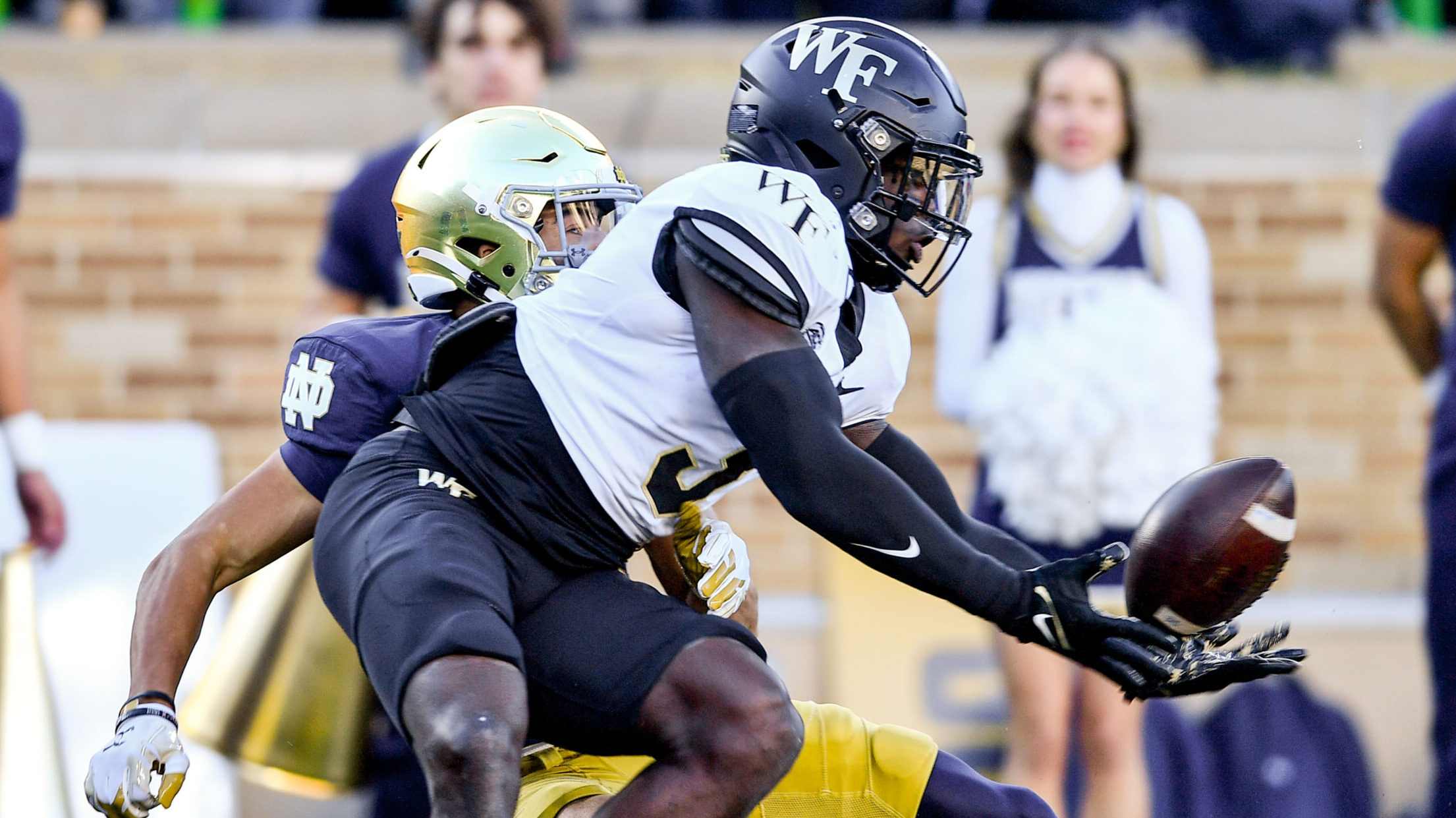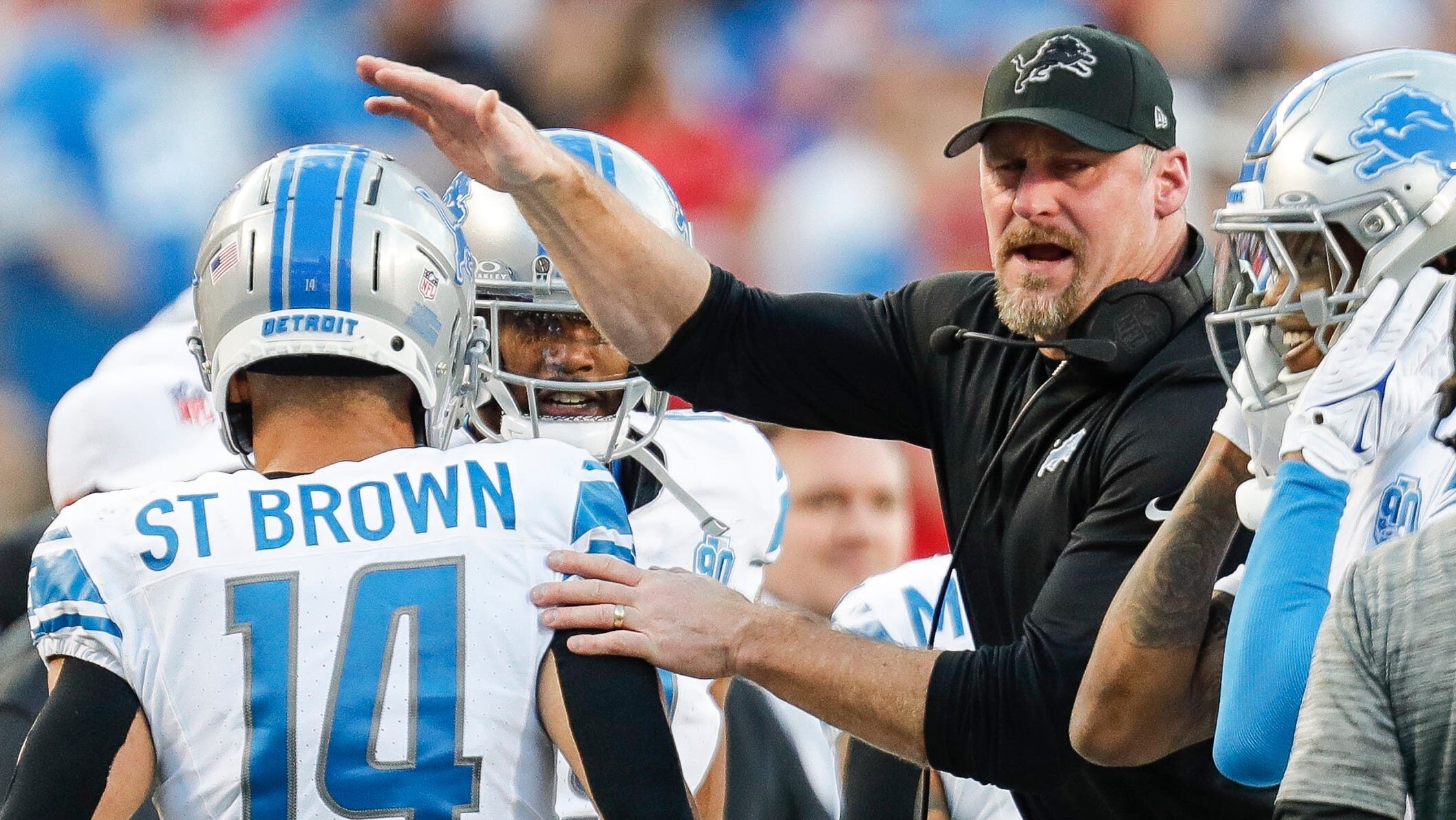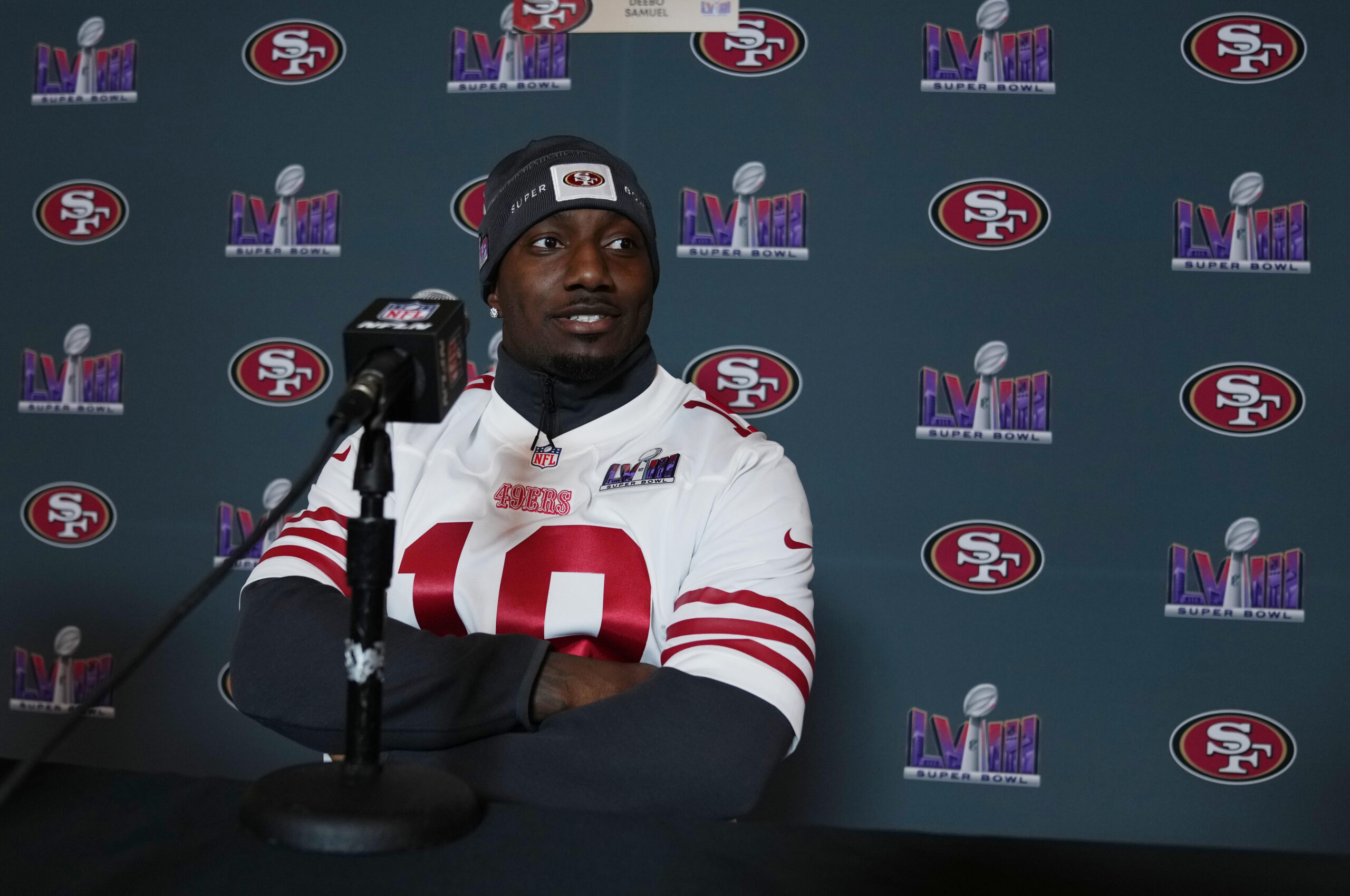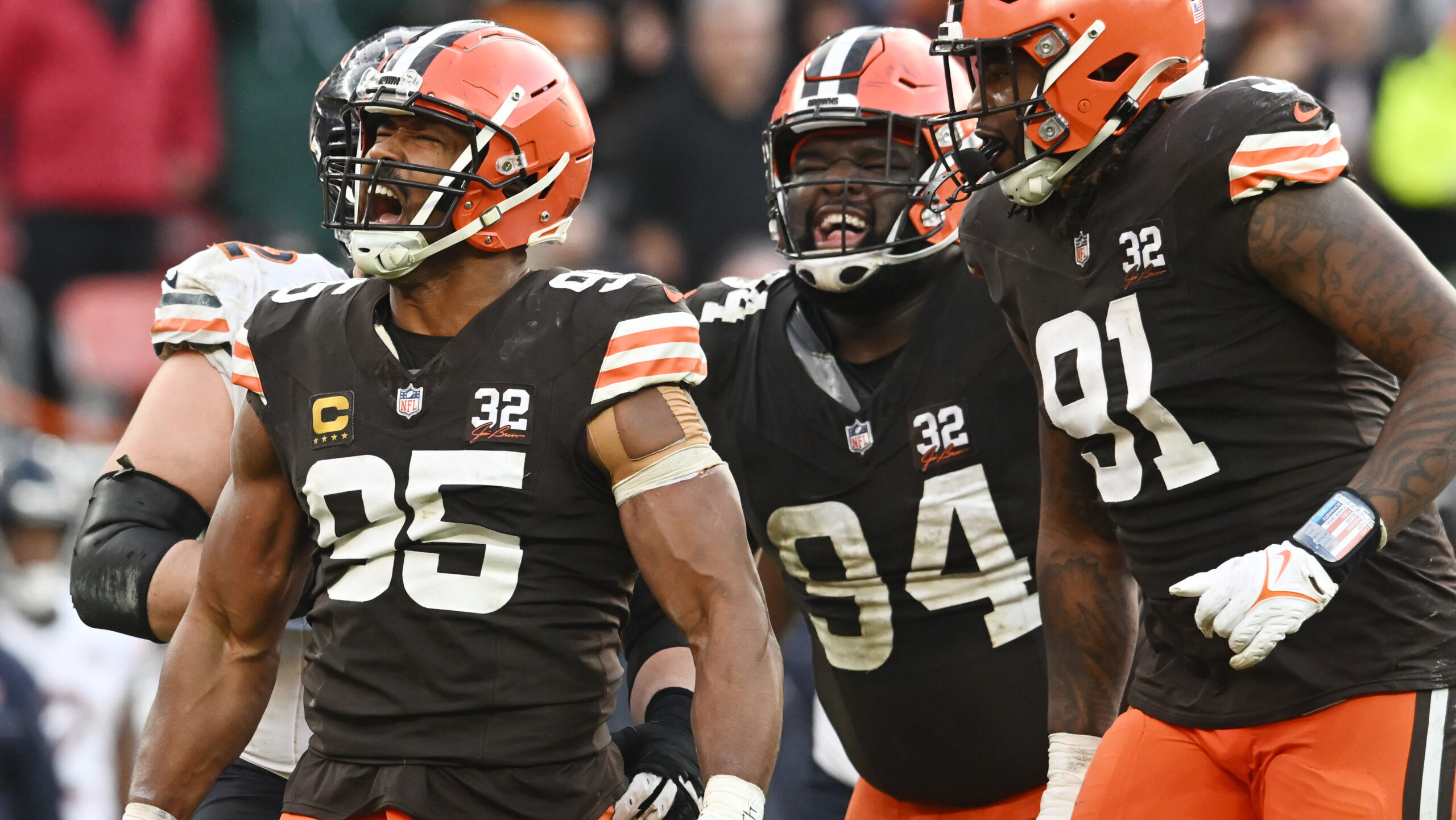Expert Analysis
12/9/23
8 min read
Is Justin Herbert Still an Elite NFL Quarterback?
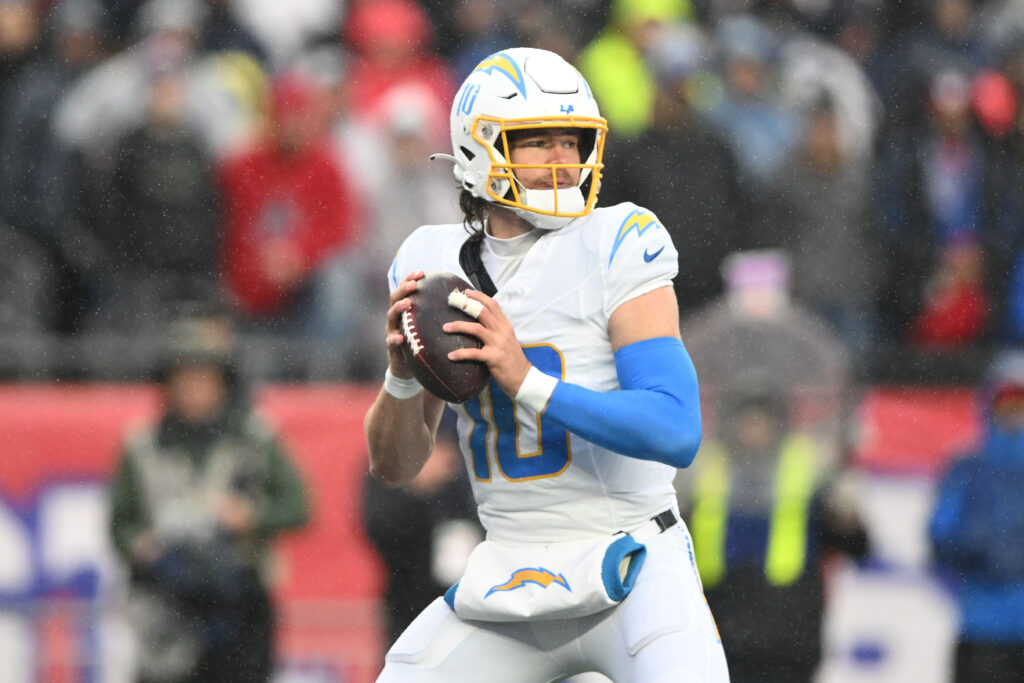
As the Los Angeles Chargers’ disappointing and underwhelming 5-7 season continues, it appears that a false narrative has circulated the league that Justin Herbert has somehow regressed in Year 4.
The Chargers are on pace for their worst season in Herbert’s career after showing steady growth through his previous three seasons by winning seven, nine and 10 games, respectively.
After an in-depth tape study of the last three games and a statistical review of this season, I stand on my previous 2022 evaluation for The 33rd Team when I stated Herbert is a special player and one of the top quarterbacks in the NFL. I believe Los Angeles’ record is affected by several other factors outside the 25-year-old’s control.
After closely watching Herbert’s performance against the Green Bay Packers, Baltimore Ravens and New England Patriots, here are my thoughts.
>>WATCH: What's Wrong with Herbert, Chargers?
Justin Herbert’s Scouting Report
Among the quarterbacks around the NFL that I have watched for The 33rd Team this year, Herbert stands out as an elite player with as good of a combination of physical tools, football intelligence, mechanics and accuracy as anyone in the NFL.
Like most greats at the quarterback position, Herbert shows precision footwork and an innate feel in the pocket for when to slide to the quiet areas and deliver. He “listens” to his feet and does an excellent job of getting the ball out on time at the top of his drop, with a plant and throw, one or two hitches and — if time permits — easily flipping his hips to finish throws to his flare control receiver.
Along with his high staging of the ball, a repeatable release and an ability to throw accurately with altered arm angles, Herbert epitomizes consistency with his mechanics.
As a passer, it’s evident that he has truly elite arm talent and that the ball explodes off his hand. He also shows the inherent ability to change speeds when appropriate. While Herbert's completion percentage is currently at a low point in his career (65.6 percent, which is right around league average), he’s still posting a career-high 68.2 QBR (No. 5 in the NFL), which backs up the eye test that says he is playing at a high level.
Although Herbert's accuracy on throws beyond 20 yards has dipped this season (16-of-47), that decline might be partly due to the loss of deep threat wide receiver Mike Williams, who tore his ACL in Week 3.
From a physical standpoint, Herbert is built as well as any quarterback in the NFL, standing at over 6-foot-6 and around 240 pounds. At that size, he has a fluid running style and the ability to outrun or avoid defenders.
Over his three most recent games, he was frequently forced out of the pocket and showed the ability to make plays on the move with his legs and/or arm. His mobility is truly underrated, and it has created an advantage for him despite inconsistent pass protection.
From a mental perspective, it is clear the fourth-year signal caller is again operating at an elite level. He’s been lauded for his intelligence off the field since college, and his processing ability, quiet mind and poise are evident each week. Herbert consistently and effortlessly works through full-field progressions throughout the tape.
His courage, toughness and composure in the pocket consistently stand out. There were less than a handful of reckless or forced throws and, in most cases, he could make the correct decision under extreme duress.
None of this is new information, by the way. Herbert has been excellent throughout all four years of his career with the Chargers.
In my opinion, the narrative that he has regressed is not backed up by the tape — he’s still performing like a top-five NFL quarterback.
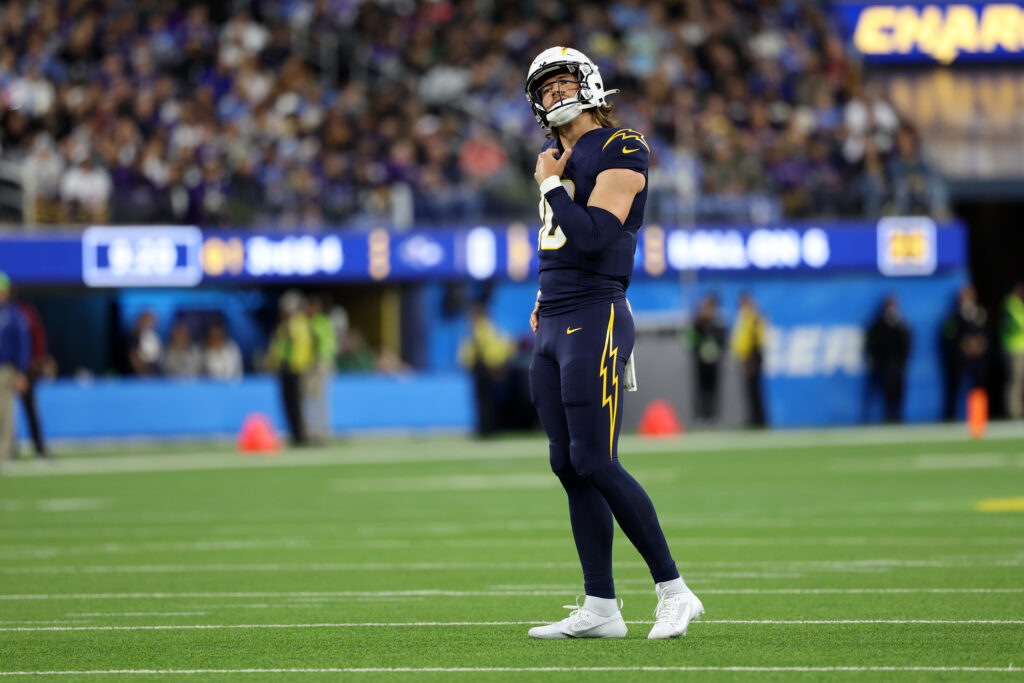
What’s Holding Chargers Back?
If Herbert still performs at such a high level, why have the Chargers limped to their losing record? There are several factors that start with his current supporting cast.
1. Struggling Wide Receivers
The Chargers' wide receivers have dropped 23 passes this season, the fifth-most in the league. These drops seem to continuously occur in critical situations, such as on third or fourth down. Against the Packers, two balls Herbert delivered perfectly were dropped in the end zone.
Across the last three games, Los Angeles' receivers did not show an ability to separate cleanly from man coverage on a play-to-play basis. Injuries to Williams and Josh Palmer have affected the receiving corps, and Keenan Allen appears to be the only consistently reliable offensive weapon at Herbert’s disposal.
2. Lack of Productivity in the Run Game
The Chargers’ rushing attack has failed to complement Herbert throughout the year. Running back Austin Ekeler, coming off an off-season holdout, has been ineffective, rushing for only 3.5 yards per carry — Los Angeles has the ninth-fewest rushing yards in the league.
Outside of Ekeler's 117-yard outburst in a Week 1 36-34 shootout loss to the Miami Dolphins, he has not surpassed the 67-yard mark this season. Ekeler had perhaps the worst game of his career Sunday — 14 carries for 18 yards against the Patriots.
With an unproductive rushing attack surrounding him, Herbert has had to carry the Chargers’ offense essentially by himself. It’s shocking that Los Angeles is 11th in scoring offense this season with an unbalanced offensive attack, even after scoring just 16 points in the past two games combined.
3. No Protection Plan
Over the most recent three-game sample, Herbert has been under constant duress that has forced him to use his athleticism, escapability and speed to extend plays.
The middle of the pocket has rarely been firm, and defenses have been able to rush four and get home while dropping seven into coverage.
Throughout the season, Herbert has been excellent at finding his quick-answer receiver and beating the blitz. Herbert is the most blitzed quarterback in the league (148 times), yet he’s completed 68.6 percent of his passes for 1,030 yards, 10 touchdowns and three interceptions, which all rank close to the top of the league.
Because of that, teams appeared to be blitzing Herbert less often in the games I watched because they’ve realized Los Angeles' offensive line has struggled, regardless of how many rushers they face.
4. Struggling Young Draft Picks
It cannot be overstated how the Chargers’ two most recent first-round picks have become weak links on the offense.
Rookie No. 21 pick Quentin Johnston was expected to fill in seamlessly for Williams as a deep threat. Still, he’s been inconsistent with his ball skills, dropping several passes at critical moments. The rookie receiver has also struggled to create separation from defensive backs.
Meanwhile, second-year left guard Zion Johnson — the No. 17 pick in 2022 — has been unproductive in pass protection as of late, which has contributed to the interior line struggles.
5. Defensive Struggles
Beyond the offense, which Herbert has carried to a level of respectability, the thing arguably holding this team back most is its defensive performance.
On paper, this defense is quite talented, yet it's allowing 21.5 points per game (12th-most in the NFL) even after shutting out the Patriots. The unit has also given up the fourth-most yards per game this season and the second-most passing yards per game.
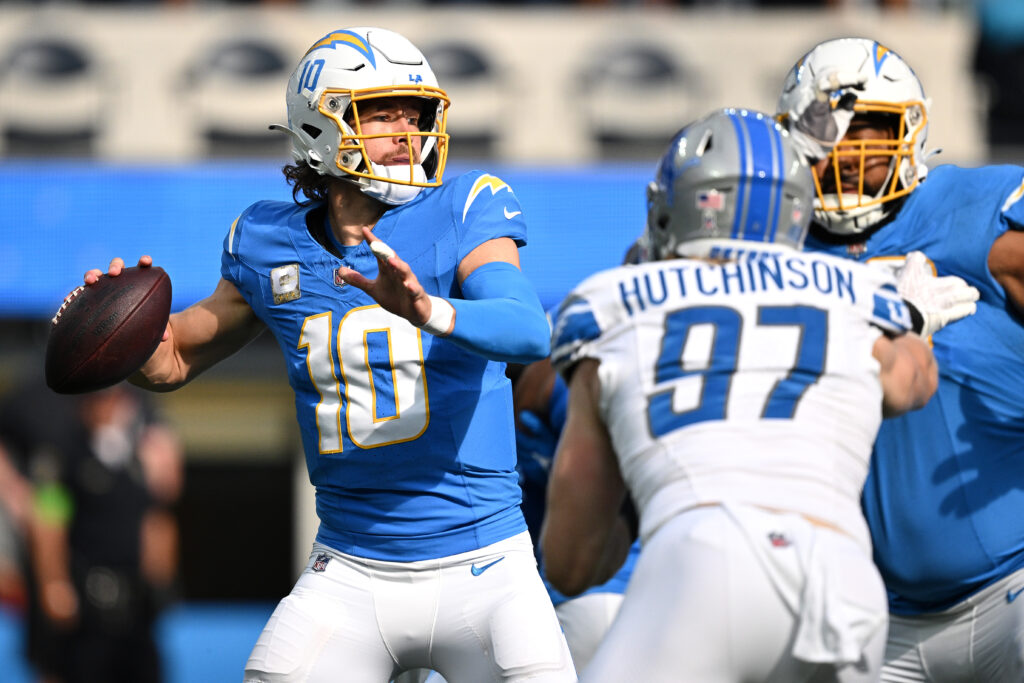
How Can Chargers Right the Ship?
If you watch all of Herbert’s passing plays — and leave out Los Angeles' defense and rushing offense — you’d expect the Chargers to be a playoff team.
I believe Herbert is a Super Bowl–caliber quarterback who is carrying an underperforming offensive line, receiving corps, rushing attack and defense to respectability.
Even while the Chargers only put up six points against Bill Belichick’s defense this past week, the young quarterback played well and made the winning throw on third down late in the fourth quarter to close out the win.
Offensively, Los Angeles needs to find its identity. In last week’s game against the Patriots, the Chargers seemed to be trying out a structural shift, with Herbert under center more often and an increased use of play action. Although they didn’t score a touchdown against Belichick and Co., moments in that game showed that this newfound strategy could lead to an improved offensive output for the remainder of the season.
It is worth remembering that five of Los Angeles’ seven losses have been by three points or fewer, and the two other defeats were at the hands of the Kansas City Chiefs and Ravens. The Chargers have been competitive all season due to their quarterback's performance despite the lack of support around him.
With four of their five remaining games coming against divisional opponents, anything can happen with a player such as Herbert under center.
Regardless, as the season continues, let’s not allow this current narrative about a potential decline to change opinions about one of the league’s great young quarterbacks. Herbert is special, and he has another opportunity to prove that at home onSunday against Russell Wilson and the Denver Broncos.


